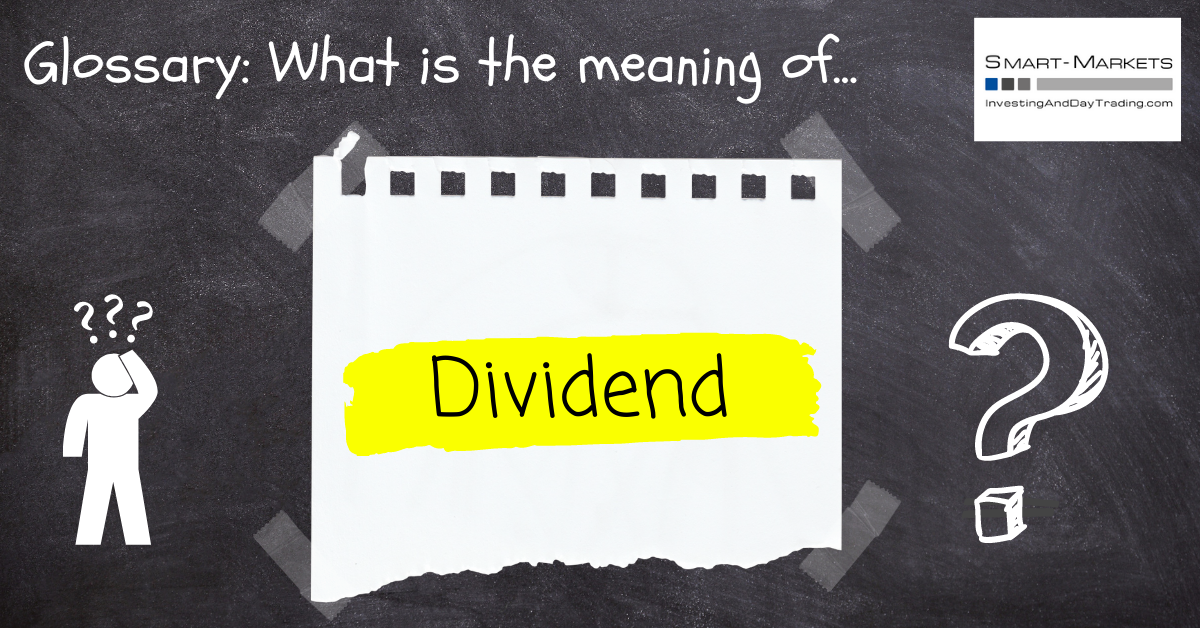The dividend is a payment the shareholder receives from the company he or she owns stocks of. This payment is part of the companies benefit and it is paid once a year or trimestrial.
Company Policies Of Dividends
Companies have different policies to achieve their goals. Looking at the dividends we are facing a long-term goal of a company including a benefit for its shareholders.
In general the biggest shareholders of a company are long-term investors. These investors rely on the dividend the company gives constantly. This also means it is necessary for the company to keep paying the dividend to link the shareholders to the company. Dividends are usually paid in a constant amounts, this means the dividends are linked to the previous period of business. It is not very common for companies to lower the dividends in between two periods, this could cause problems with the shareholders and their interests.
Only if the company’s profit was not as high as estimated and the profits broke in there might be changes in the amount of dividends. Then a reduction might be the outcome.
Dividend Payout Ratio
When the companies’ revenue is higher than its expanses the company makes profit. As we already said dividends are parts of the profits from one business period. The quote between profits and the dividends is called dividend payout ratio.
Many analysts say the dividend payout ratio should not be higher than 50% so the company is still able to put money in the growth or expansion of the company.
Companies also have the opportunity to pay dividend even though they did not realize profits. Then they pay form the companies reserves.
Dividends For Index-CFDs
Traders who trades the DAX-CFD (contracts for difference) need not to worry. All the dividend payments are already included because the DAX is a so called "Performance-Index".
This makes the DAX an exception. Most indexes (like Dow Jones, S&P 500, CAC 40, FTSE 100) are so called "price indexes". That means only the price history of stocks is included; dividend payments and other corporate actions are excluded.
Example:
Purchase of nominal 100.000 USD of the Dow Jones CFDs
Each stock allows a dividend of 0,05% of the index.
Your trading account receives a credit of 50 USD.
Caution when holding short postions in index-CFDs
Let’s have a look at the example again. If it is time for the dividend payments and you are short about 100.000 USD in Dow Jones CFD the dividend will be withdrawn from your account by 50 USD.
Especially for long-term positions it is important to consider this!

